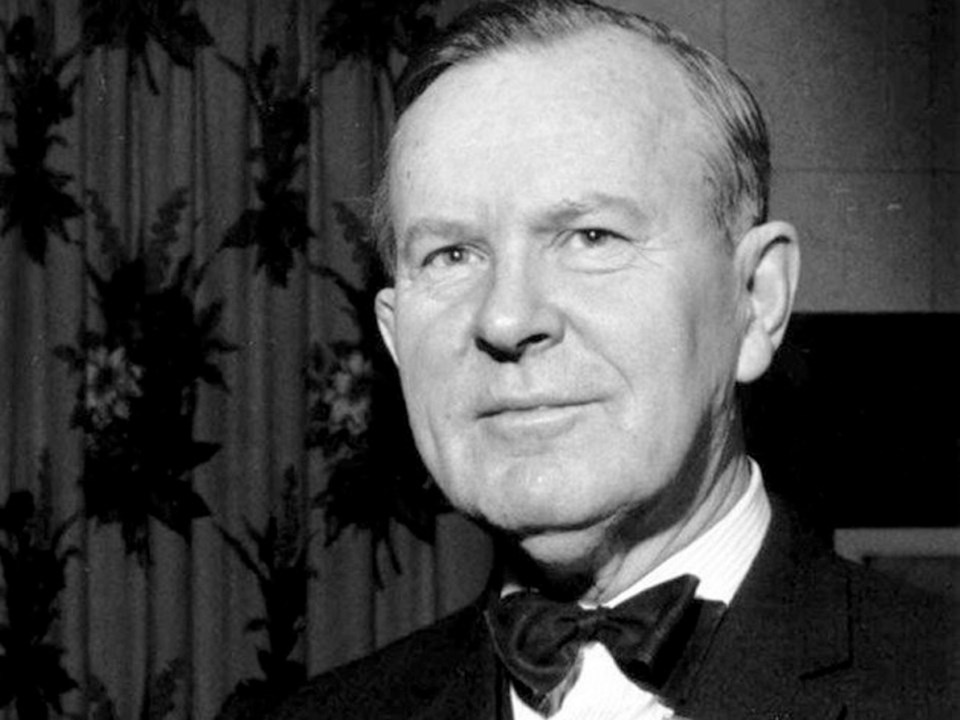In 1948, in the midst of negotiating the North Atlantic Treaty, external affairs minister Lester Pearson and deputy minister Escott Reid had a crazy idea.
While NATO was to be a military and defence alliance in response to “an aggressive, subversive Communist juggernaut on the move,” the two diplomats had an additional thought.
What if NATO could be more than collective security? What if the organization could go beyond defence and work to strengthen its members’ “free institutions,” bring about a better understanding of the principles underlying them and encourage “economic collaboration” by any or all of NATO’s members?
Even Canada’s negotiator, ambassador Hume Wrong, was lukewarm to the idea. However, Pearson and Reid prevailed, and these objectives became Article 2 of the treaty, known as “the 91ԭ�� article.”
Despite Canada’s best efforts, there was no consensus within NATO on how to apply Article 2. But the North Atlantic community might well need Article 2’s objectives more than ever, as it faces yet another Communist regime, a regime that is arguably more invidious and ambitious than the USSR: China.
British professor and author Niall Ferguson has noted the paradox: Since the 1990s, the principal beneficiary of the West’s liberal international order has been “a communist, one-party state.” China now has the world’s second largest economy and will likely take over first place from the United States before 2030.
There is an old expression: The only two organizations in the world that have a long-term vision are the Catholic church and the Communist Party. China certainly has a world vision for the future, which it has made abundantly clear. President Xi Jinping told last October’s Communist Party National Congress that the Chinese model has opened “a new trail for other developing countries to achieve modernization.”
The Globe and Mail’s China correspondent, Nathan Vanderklippe, described the “Chinese model” as “authoritarian capitalism, an alternative to the Western democracy it is seeking to undermine.” China is putting its words into action with the creation of its “Belt and Road Initiative” providing billions of dollars of infrastructure to more than 60 countries. China’s real objective is seen as developing its own trade routes to rival the West.
In his first speech to the United Nations General Assembly in 2015, Xi underlined that China was the first country to put its signature on the UN Charter in 1945. He failed to refer to the important role China played in the drafting of the UN’s 1948 Universal Declaration of Human Rights, laid out by 91ԭ�� legal scholar John Humphrey. China, however, is in violation of 25 of the declaration’s 30 articles.
The Economist put it well in saying China is in a new global battle to guide, buy or coerce political influence. In contrast to the Soviet Union during the Cold War, China is a sought-after trading partner, investing huge sums around the world in trade, investment and infrastructure.
Xi proclaimed that China has a vision of “guiding international society toward a more just and rational world order.” Perhaps it is time for the democracies of the Western world, which established the post-Second World War international order, to set out their own vision for the future. It’s time for the “North Atlantic Community” to harness the idea of political and economic co-operation envisaged by Article 2 of the North Atlantic Treaty, but in a modern, not Cold War, context.
Perhaps this is another “crazy idea.” Trump times do not augur well for economic agreements. NAFTA is in jeopardy, and the Transatlantic Trade and Investment Partnership launched by former president Barack Obama with the EU is likely as dead as U.S. participation in the Trans 91ԭ�� Partnership. But visions have to start somewhere, some time.
A NAFTA and EU economic agreement makes economic, as well as political, sense. Together, these two groups make up the largest economic area in the world, with half of its GDP. North Atlantic trade, including that within NAFTA and the EU, makes up 37 per cent of global merchandise flows and a higher percentage in services trade.
There is no question leadership on both sides of the Atlantic would be required to make a NAFTA-EU economic agreement possible. It would take leaders, particularly in Washington, to see they cannot leave China alone with its own worldwide agenda. By engaging democratic states on both sides of the Atlantic to create the world’s largest trading block, they would enhance the future well-being of all their citizens.
Armand De Mestral, McGill chair in the law of international economic integration, identifies the country that could well be the greatest advocate for what he calls “the Atlantic Free Trade Area” — Great Britain. By advocating, and achieving, transatlantic free trade, the British could have their Brexit cake and eat it, too. Now that’s a smart idea.
Robert Hage was a diplomat in the 91ԭ�� Foreign Service for 38 years, former ambassador to Hungary and Slovenia, and director general of the European and legal affairs bureaus.
